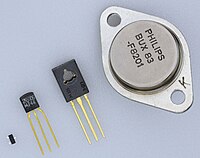
Solution effects on the self-association of a water-soluble peptoid.
Sign Up to like & getrecommendations! Published in 2019 at "Biopolymers"
DOI: 10.1002/bip.23248
Abstract: A desire to replicate the structural and functional complexity of proteins with structured, sequence-specific oligomers motivates study of the structural features of water-soluble peptoids (N-substituted glycine oligomers). Understanding the molecular-level details of peptoid self-assembly in… read more here.
Keywords: solution effects; water; water soluble; effects self ... See more keywords

Changing attitudes towards healthy food via self-association or nutritional information: What works best?
Sign Up to like & getrecommendations! Published in 2019 at "Appetite"
DOI: 10.1016/j.appet.2018.08.001
Abstract: Individual attitudes, both implicit and explicit, have been identified as one of the multiple drivers of consumer behaviors, including food-related ones. Building on such evidence, in this contribution we seek at increasing implicit and explicit… read more here.
Keywords: association; food; towards healthy; healthy food ... See more keywords

Multiscale Coarse-Grained Approach to Investigate Self-Association of Antibodies.
Sign Up to like & getrecommendations! Published in 2020 at "Biophysical journal"
DOI: 10.1016/j.bpj.2020.04.022
Abstract: Self-association of therapeutic monoclonal antibodies (mabs) are thought to modulate the undesirably high viscosity observed in their concentrated solutions. Computational prediction of such a self-association behavior is advantageous early during mab drug candidate selection when… read more here.
Keywords: self association; coarse grained; approach;

Impact of self-association on the architectural properties of bacterial nucleoid proteins.
Sign Up to like & getrecommendations! Published in 2020 at "Biophysical journal"
DOI: 10.1016/j.bpj.2020.12.006
Abstract: The chromosomal DNA of bacteria is folded into a compact body called the nucleoid, which is composed essentially of DNA (≈80%), RNA (≈10%), and a number of different proteins (≈10%). These nucleoid proteins act as… read more here.
Keywords: impact self; dna; nucleoid proteins; architectural properties ... See more keywords

Karyopherins and condensates.
Sign Up to like & getrecommendations! Published in 2020 at "Current opinion in cell biology"
DOI: 10.1016/j.ceb.2020.04.003
Abstract: Several aggregation-prone RNA-binding proteins, including FUS, EWS, TAF15, hnRNP A1, hnRNP A2, and TDP-43, are mutated in neurodegenerative diseases. The nuclear-cytoplasmic distribution of these proteins is controlled by proteins in the karyopherin family of nuclear… read more here.
Keywords: binding proteins; rna binding; karyopherins condensates; biology ... See more keywords

Ab initio study of AlBu i 3 self-association
Sign Up to like & getrecommendations! Published in 2017 at "Computational and Theoretical Chemistry"
DOI: 10.1016/j.comptc.2017.04.004
Abstract: By the methods of the Density Functional Theory and second-order Moller-Plesset perturbation theory calculations the self-association process of triisobutylaluminum AlBui3 in the temperature range of 203–403 K is studied. The effects of solvation were studied using… read more here.
Keywords: chemistry; association; albu self; study albu ... See more keywords

Self-association processes of substituted alumolanes in non-polar solvents
Sign Up to like & getrecommendations! Published in 2017 at "Journal of Organometallic Chemistry"
DOI: 10.1016/j.jorganchem.2017.12.005
Abstract: Abstract The processes of 1-ethyl-3-R-alumolane (R= n-Alk, iBu, Ph, Bn, SiMe3, p-methoxybenzyl) self-association in toluene, benzene, cyclohexane and dichloromethane were studied for the first time by multinuclear NMR spectroscopy and quantum chemical modeling. Using 1H,… read more here.
Keywords: association processes; non polar; spectroscopy; self association ... See more keywords

Biophysical and Sequence-Based Methods for Identifying Monovalent and Bivalent Antibodies with High Colloidal Stability.
Sign Up to like & getrecommendations! Published in 2018 at "Molecular pharmaceutics"
DOI: 10.1021/acs.molpharmaceut.7b00779
Abstract: In vitro antibody discovery and/or affinity maturation are often performed using antibody fragments (Fabs), but most monovalent Fabs are reformatted as bivalent IgGs (monoclonal antibodies, mAbs) for therapeutic applications. One problem related to reformatting antibodies… read more here.
Keywords: antibody; association; biophysical properties; reformatted bivalent ... See more keywords

Differential Mobility and Self-Association of Arc/Arg3.1 in the Cytoplasm and Nucleus of Living Cells.
Sign Up to like & getrecommendations! Published in 2022 at "ACS chemical neuroscience"
DOI: 10.1021/acschemneuro.1c00744
Abstract: Arc, also known as Arg3.1, is an activity-dependent immediate-early gene product that plays essential roles in memory consolidation. A pool of Arc is located in the postsynaptic cytoplasm, where it promotes AMPA receptor endocytosis and… read more here.
Keywords: arc; mobility self; differential mobility; cytoplasm ... See more keywords

How Sugars Modify Caffeine Self-Association and Solubility: Resolving a Mechanism of Selective Hydrotropy.
Sign Up to like & getrecommendations! Published in 2019 at "Journal of the American Chemical Society"
DOI: 10.1021/jacs.9b07056
Abstract: The aggregation of drugs and nutraceuticals in aqueous media is an outstanding problem for their efficacy and bioavailability. A common solution is to add excipients or hydrotropes that increase solubility and limit aggregation. Here we… read more here.
Keywords: caffeine self; mechanism; solubility; sugars modify ... See more keywords

Self-association of MreC as a regulatory signal in bacterial cell wall elongation
Sign Up to like & getrecommendations! Published in 2021 at "Nature Communications"
DOI: 10.1038/s41467-021-22957-9
Abstract: The elongasome, or Rod system, is a protein complex that controls cell wall formation in rod-shaped bacteria. MreC is a membrane-associated elongasome component that co-localizes with the cytoskeletal element MreB and regulates the activity of… read more here.
Keywords: mrec; cell wall; self association;